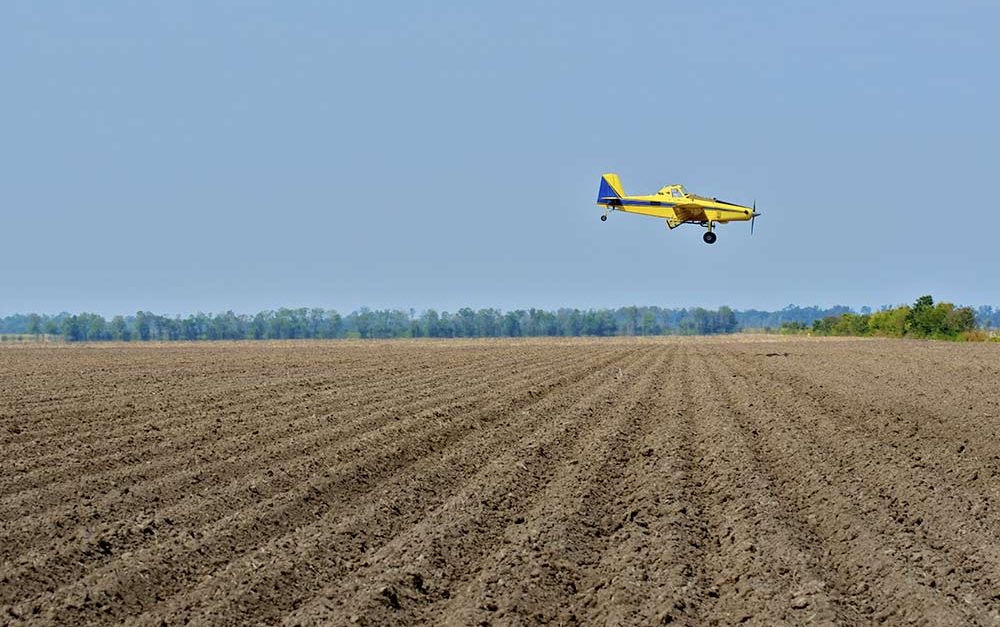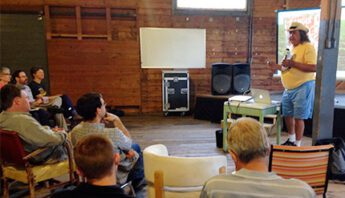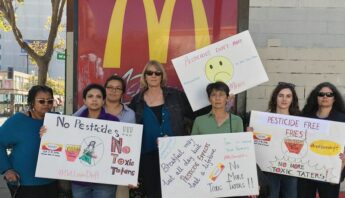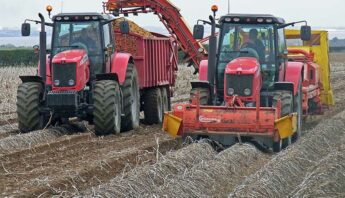Crop dusters flying overhead, irrigators pumping, and chemical odors in the air. For people who live near RD Offutt’s pesticide-intensive potato fields in Minnesota, these are characteristics of summertime, as much as canoe rides across the lake or picking fresh vegetables from the garden.
The story is a familiar one for many communities who face pesticide drift. For those of us who don’t live near industrial agriculture, it may be hard to imagine. That’s why we’re excited to share a short new video amplifying the courageous voices of those most impacted by potato pesticides in northern Minnesota. The video was created to support Toxic Taters October 6 national day of action — when we’ll be calling on McDonald’s to require its growers, like RDO, to cut pesticide use.
Gathering stories
This week I interviewed Lera Hephner, one of the young videographers behind the new video, to learn more about the video project and why she got involved.
The Toxic Taters Coalition took up the task of collecting video stories from people who were affected by pesticides drifting from RDO potato fields. Lera and Arianna Ellis – both young Anishinaabeg women who grew up on the White Earth Indian Reservation — agreed to lead the video project, learn filmmaking skills and gather stories about pesticide drift from community members.
After Lera and Arianna finished a two-day crash course in filming, editing and interviewing, they hopped in the car and started talking with community members. They filmed at people’s homes, local schools, powwows, county fairs and community events. The first video, embedded below, features some of the personal stories they collected — with more to come as the project continues.
The courage to speak up
As Lera and Arianna learned, for many people it’s not easy to speak out about pesticide drift. In some rural communities, especially areas where one large corporation like RDO dominates the agricultural landscape, people fear that they may be putting their jobs or relationships at risk if they share their experiences.
Lera explained to me that some people who had signed up to be interviewed had a change of heart:
Some people said, ‘once I talked to my family or friends or former co-workers, they suggested that maybe I shouldn’t [be interviewed on camera].’ We’ll have an awesome person that has a lot of things to share, and we just want to know the story of their experience with pesticides, how it’s impacted them and their communities. We want to let people have a voice in what’s going on, let their voices be heard. To know some people don’t feel comfortable doing that, it’s heartbreaking.
It takes real courage for people who live near chemical-intensive agriculture to speak out, and more and more people are doing just that. I hope many of us will do our part to match their courage by joining in the Toxic Taters day of action on October 6. In Lera’s words:
What’s happening in the potato fields has a really big impact on the children and the future generations. We all have kids in our lives who we care about a lot — nieces and nephews or children of our own or grandchildren or brothers and sisters. It’s because of them that we need to have strength and power in what we’re doing. We have a big voice in how big companies like McDonald’s produce their food. And by taking action on October 6, we’ll make a difference. It won’t go unheard.
Take Action Join the Toxic Taters national Day of Action this Tuesday October 6! We can all support rural community members who are standing up and speaking out to stop pesticide drift.








